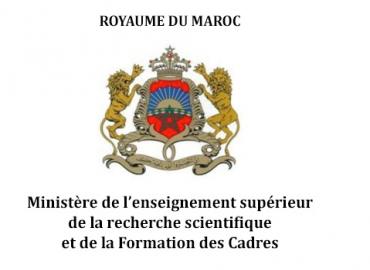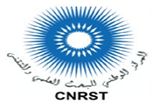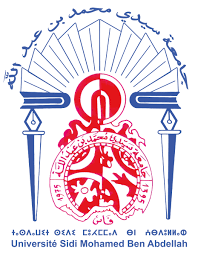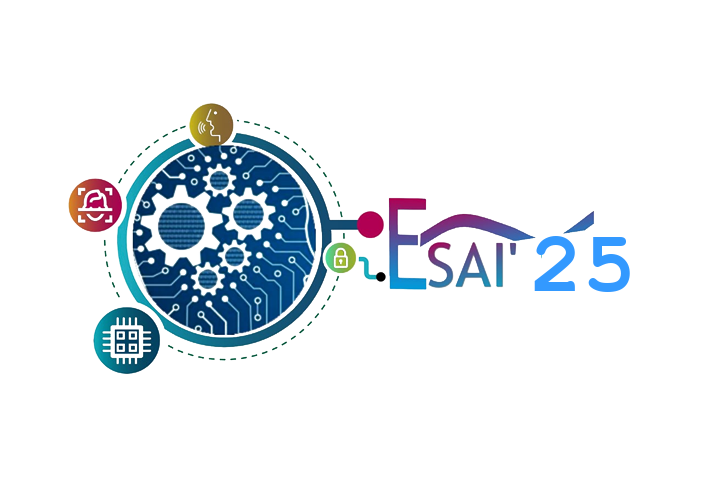 December 18-19, 2025 | Fez, Morocco
December 18-19, 2025 | Fez, Morocco
Technically Co-Sponsored by



IEEE ESAI'25 Conference Record Number : #67033
 December 18-19, 2025 | Fez, Morocco
December 18-19, 2025 | Fez, Morocco




Pr. Jaime Lloret (jlloret@dcom.upv.es) received his B.Sc.+M.Sc. in Physics in 1997, his B.Sc.+M.Sc. in electronic Engineering in 2003 and his Ph.D. in telecommunication engineering (Dr. Ing.) in 2006. He is a Cisco Certified Network Professional Instructor and he has 7 Cisco Networking Academy Certifications. He also has the Hewlett-Packard IT Architect Certification. He worked as a network designer and administrator in several enterprises. He is Full Professor at the Polytechnic University of Valencia. He is the Chair of the Integrated Management Coastal Research Institute (IGIC) since January 2017. He was the founder of the “Communications and Networks” research group of the IGIC and he is the head (and founder) of the "Active and collaborative techniques and use of technologic resources in the education (EITACURTE)" Innovation Group. He is the director of the University Diploma “Redes y Comunicaciones de Ordenadores” and he has been the director of the University Master "Digital Post Production" for the term 2012-2016. He was Vice-chair for the Europe/Africa Region of Cognitive Networks Technical Committee (IEEE Communications Society) for the term 2010-2012 and Vice- chair of the Internet Technical Committee (IEEE Communications Society and Internet Society) for the term 2011-2013. He has been Internet Technical Committee chair (IEEE Communications Society and Internet Society) for the term 2013-2015. He has authored 15 books and has more than 1000 research papers published in national and international conferences, international journals (more than 600 with Clarivate Analytics JCR). He has been the co-editor of 54 conference proceedings and guest editor of several international books and journals. He is editor-in-chief of the “Ad Hoc and Sensor Wireless Networks” (with Clarivate Analytics Impact Factor), the international journal "Networks Protocols and Algorithms", and the International Journal of Multimedia Communications. Moreover, he is Associate editor of “Sensors” in the Section Sensor Networks, and advisory board member of the “International Journal of Distributed Sensor Networks” (all with Clarivate Analytics Impact factor), and he is IARIA Journals Board Chair (8 Journals). Furthermore, he is (or has been) associate editor of 46 international journals (16 of them with Clarivate Analytics Impact Factor). He has led many local, regional, national and European projects (Main researcher in more than 15 national or European projects). He has authored 15 patents. He was the chair of the Working Group of the Standard IEEE 1907.1 from 2013 to 2018. Since 2016 till today he is the Spanish researcher with highest h-index in the TELECOMMUNICATIONS list according to Clarivate Analytics Ranking. Moreover, he is included in the world’s top 2% scientists according to the Stanford University List since 2019. In 2024 he had 7 Highly cited papers according to Clarivate Analytics. He has been involved in more than 500 Program committees of international conferences, and more than 160 organization and steering committees. He has been general chair (or co-chair) of 92 International workshops and conferences (chairman of SENSORCOMM 2007, UBICOMM 2008, ICNS 2009, ICWMC 2010, eKNOW 2012, SERVICE COMPUTATION 2013, COGNITIVE 2013, ADAPTIVE 2013, 12th AICT 2016, 11th ICIMP 2016, 3rd GREENETS 2016, 13th IWCMC 2017, 10th WMNC 2017, 18th ICN 2019, 14th ICDT 2019, 12th CTRQ 2019, 14th ICSNC 2019, 8th INNOV 2019, 14th ICDS 2020, 5th ALLSENSORS 2020, IndustrialIoT 2020, COGNITIVE 2020, ADAPTIVE 2020, SENSORCOMM 2020, AFIN 2020, ACN 2020, GC-ElecEng 2020, 13th COGNITIVE 2021, 13th ADAPTIVE 2021, 15th UBICOMM 2021, 17th ICNS 2021, 16th ICIW 2021, 18th WINSYS 2021, 5th MCNA 2021, 18th ICNS 2022, 14th COGNITIVE 2022, 14th ADAPTIVE 2022, 17th ICIW 2022, 16th UBICOMM 2022, 19th WINSYS 2022, MCNA 2023, 18th ICSNC 2023, 8th HEALTHINFO 2023 and WIRELESS ANALYTICS 2024, and co-chairman of ICAS 2009, INTERNET 2010, MARSS 2011, IEEE MASS 2011, SCPA 2011, ICDS 2012, 2nd IEEE SCPA 2012, GreeNets 2012, 3rd IEEE SCPA 2013, SSPA 2013, AdHocNow 2014, MARSS 2014, SSPA 2014, IEEE CCAN 2015, 4th IEEE SCPA 2015, IEEE SCAN 2015, ICACCI 2015, SDRANCAN 2015, FMEC 2016, 2nd FMEC 2017, 5th SCPA 2017, XIII JITEL 2017, 3rd SDS 2018, 5th IoTSMS 2018, 4th FMEC 2019, 10th International Symposium on Ambient Intelligence 2019, 6th SNAMS 2019, ACN 2019, 12th ICICS 2021, 8th IoTSMS 2021, 18th AICCSA 2021, ICCNS 2023, 10th IoTSMS 2023, 21st CDVE 2024, 9th IOTSMS 2024, MCNA 2024, 11th SDS 2024, Wireless Analytics 2024, 7th COGNITIVE 2025, 2nd IDSS 2025, 6th IDSTA 2025, 4th FCSIT 2025, 19th UBICOMM 2025, AIMS 2025, 12th SDS 2025, and 4th ComManTel 2025, and local chair of MIC-WCMC 2013, IEEE Sensors 2014, and FCSIT 2024). He is IEEE Senior, ACM Senior, IARIA Fellow and EAI Fellow.
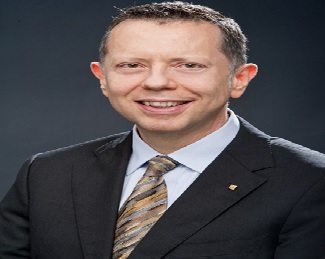
Pr. Vincenzo Piuri has received his Ph.D. in computer engineering at Polytechnic of Milan, Italy (1989). He is Full Professor in computer engineering at the University of Milan, Italy (since 2000). He has been Associate Professor at Polytechnic of Milan, Italy and Visiting Professor at the University of Texas at Austin, USA, and visiting researcher at George Mason University, USA. His main research interests are: artificial intelligence, computational intelligence, machine learning, pattern analysis and recognition, intelligent systems, signal and image processing, biometrics, intelligent measurement systems, industrial applications, digital processing architectures, fault tolerance, cloud computing infrastructures, and internet-of-things. Original results have been published in 400+ papers in international journals, proceedings of international conferences, books, and book chapters. He is Fellow of the IEEE, Distinguished Scientist of ACM, and Senior Member of INNS. He is IEEE Region 8 Director (2023-24), and has been IEEE Vice President for Technical Activities (2015), IEEE Director, President of the IEEE Systems Council, President of the IEEE Computational Intelligence Society, Vice President for Education of the IEEE Biometrics Council, Vice President for Publications of the IEEE Instrumentation and Measurement Society and the IEEE Systems Council, and Vice President for Membership of the IEEE Computational Intelligence Society. He has been Editor-in-Chief of the IEEE Systems Journal (2013-19). He is Associate Editor of IEEE Open Journal on Systems Engineering and has been Associate Editor of the IEEE Transactions on Computers, the IEEE Transactions on Cloud Computing, the IEEE Transactions on Neural Networks, the IEEE Transactions on Instrumentation and Measurement, and IEEE Access. He received the IEEE Instrumentation and Measurement Society Technical Award (2002), the IEEE TAB Hall of Honor (2019), and the Rudolf Kalman Professor Title of the Obuda University, Hungary. He is Honorary Professor at: Obuda University, Hungary; Guangdong University of Petrochemical Technology, China; Northeastern University, China; Muroran Institute of Technology, Japan; Amity University, India; Galgotias University, India; Chandigarh University, India; and BIHER, India.
Adaptability and advanced services for ambient intelligence require an intelligent technological support for understanding the current needs and the desires of users in the interactions with the environment for their daily use, as well as for understanding the current status of the environment also in complex situations. This infrastructure constitutes an essential base for smart living. Various technologies are nowadays converging to support the creation of efficient and effective infrastructures for ambient intelligence. Artificial intelligence can provide flexible techniques for designing and implementing monitoring and control systems, which can be configured from behavioral examples or by mimicking approximate reasoning processes to achieve adaptable systems. Machine learning can be effective in extracting knowledge form data and learn the actual and desired behaviors and needs of individuals as well as the environment to support informed decisions in managing the environment itself and its adaptation to the people’s needs. Biometrics can help in identifying individuals or groups: their profiles can be used for adjusting the behavior of the environment. Machine learning can be exploited for dynamically learning the preferences and needs of individuals and enrich/update the profile associated either to such individual or to the group. Biometrics can also be used to create advanced human-computer interaction frameworks. Cloud computing environments will be instrumental in allowing for world-wide availability of knowledge about the preferences and needs of individuals as well as services for ambient intelligence to build applications easily. This talk will analyze the opportunities offered by these technologies to support the realization of adaptable operations and intelligent services for smart living in an ambient intelligent infrastructures.

Pr. Leonel Sousa received the PhD degree in electrical and computer engineering from Instituto Superior Tecnico (IST), Universidade de Lisboa (UL), Lisbon, Portugal, in 1996. He is currently a full professor at UL and a senior researcher at the R&D Instituto de Engenharia de Sistemas e Computadores (INESC-ID). His research interests include high performance and parallel computing, and computer architecture. He has contributed to more than 300 papers in journals and international conferences, and has been responsible for the portuguese participation in the following EuroHPC projects: European Processor Initiative (EPI) SGA1 and SGA2, Digital Autonomy with RISC-V in Europe (DARE), and Performance Optimisation and Productivity Centre of Excellence in HPC (POP3). He has been Associate Editor of the IEEE Transactions on Computers and IEEE Transactions on Emerging Topics in Computing. Furthermore, he was Distinguished Visitor in the DVP of the IEEE Computer Society, an ACM Distinguished Speaker, and currently a member of the ACM Distinguished Speakers Program Committee. Leonel Sousa is Distinguished Scientist of ACM, Fellow of IET, and Distinguished Contributor of the IEEE Computer Society.
Designing efficient architectures and optimizing algorithms for modern hardware is a complex challenge. Applications are becoming increasingly demanding, hardware platforms more diverse, and design specifications more constrained. The first part of this talk presents a model-driven design methodology that enables fast exploration of large design spaces, producing efficient architectures under performance constraints. This methodology combines design space pruning with performance estimation based on the Cache-Aware Roofline Model (CARM), significantly reducing the need for costly simulations. This approach was evaluated by designing a RISC-V accelerator tailored for the Extended Reality Machine Learning Benchmark Suite for the Metaverse (XRBench). The second part of the talk introduces a CARM-based performance and efficiency model for deep learning workloads on GPU Tensor Cores. This model is used to characterize the performance of individual deep learning layers and to optimize well-established models such as VGG and U-Net. The talk concludes by highlighting the importance of CARM in co-designing architectures and optimizing applications, emphasizing its role as a powerful tool for bridging hardware and software in embedded and high-performance computing systems.
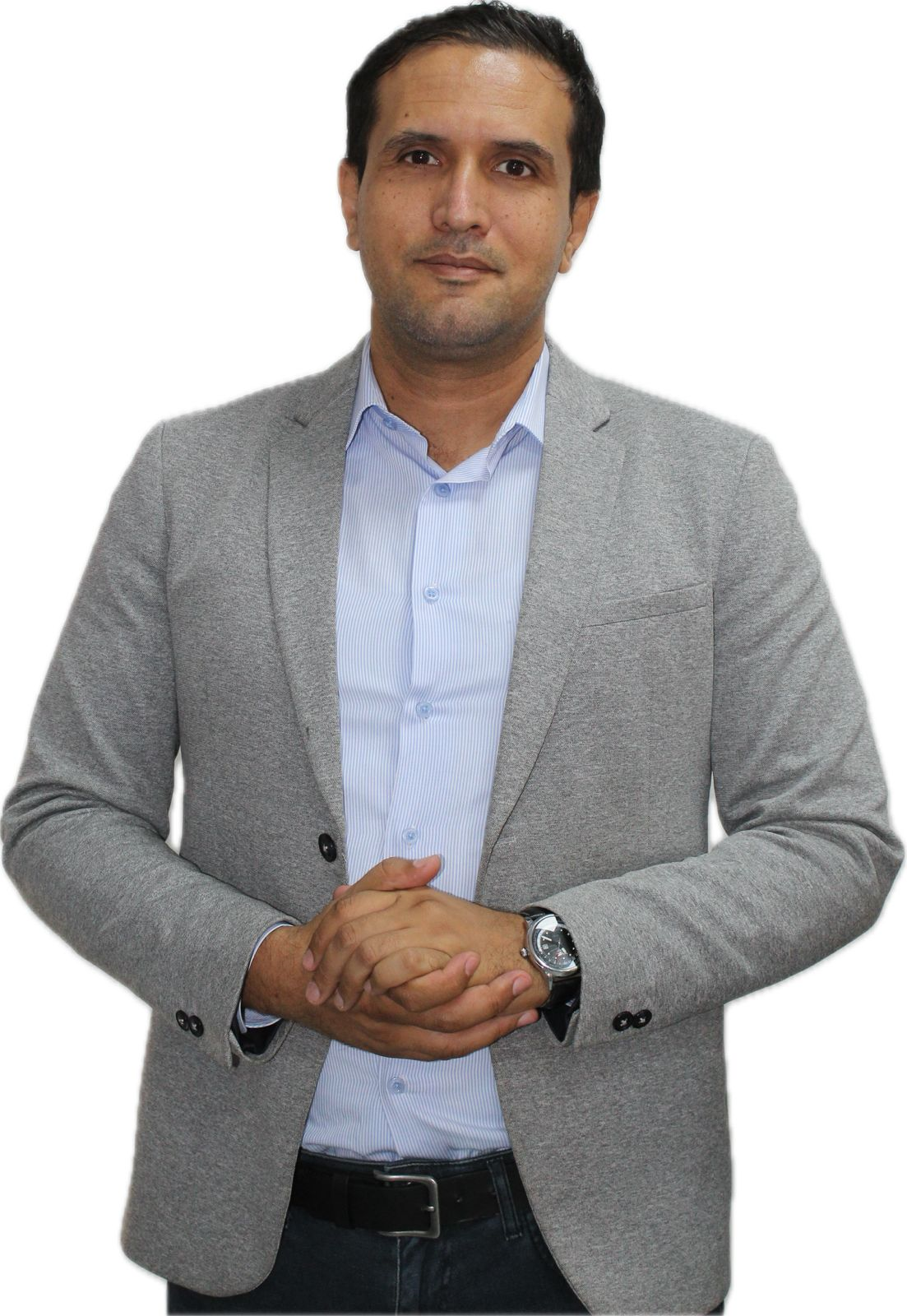
Pr. Omar BENCHAREF is an IT entrepreneur and artificial intelligence expert affiliated with the Faculty of Science and Technology at Cadi Ayyad University, Marrakech. He is the co-founder of Alidantek (Canada and Morocco) and Fintech Alliance, and the founder of Cantek, companies specialized in AI and software development. His work bridges academic research and industrial innovation, focusing on the integration of generative AI and automation within business environments.
The rapid convergence of Generative Artificial Intelligence (GAI) and automation marks a turning point in how enterprises operate, innovate, and compete. Beyond productivity gains, GAI is transforming the logic of work itself — from creative ideation to decision support, from marketing personalization to financial forecasting. Tasks that once required human intervention — such as drafting reports, segmenting customers, or reconciling transactions — are now automated through intelligent agents capable of reasoning, contextual understanding, and adaptive learning. In marketing, GAI enables hyper-personalized campaigns that adjust content and tone in real time. In finance, automated systems perform predictive analysis and generate adaptive budget simulations. In operations and HR, intelligent workflows accelerate recruitment, compliance, and customer support. Yet these benefits raise fundamental research challenges: how to ensure contextual accuracy, maintain data privacy, and validate AI-generated outputs within complex enterprise ecosystems. This plenary will examine key research directions emerging from these transformations. Among them are fine-tuning and domain adaptation to align large models with enterprise knowledge; retrieval-augmented generation (RAG) to combine reasoning with factual grounding; Crew-based agent orchestration to coordinate multiple specialized models; and validation pipelines to assess trustworthiness, explainability, and compliance. By bridging generative intelligence and automation, enterprises can evolve toward self-optimizing organizations — adaptive systems where human expertise and AI continuously co-create value.
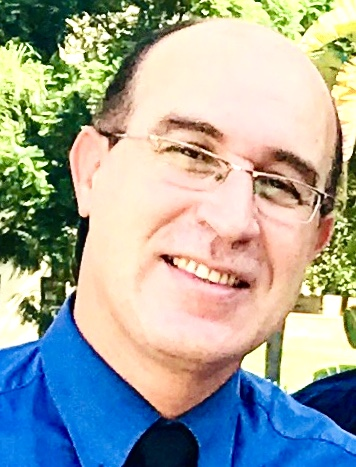
Pr. Mohammed SEAID graduated in Applied Mathematics from the Complutense University of Madrid, Spain. He subsequently held research and academic positions at the Technische Universität Darmstadt and Technische Universität Kaiserslautern in Germany, serving as a postdoctoral researcher, research associate, and assistant professor. Since 2017, he has been an Affiliated Professor at the Mohammed VI Polytechnic University in Benguerir, Morocco. He also holds the position of Chair of the Computational Mechanics Group in the Department of Engineering at the University of Durham, United Kingdom. Prof. Seaid’s research lies at the intersection of two major areas (i) Physics-based modelling and numerical methods, and (ii) Data-driven machine learning modelling and scientific computing. Much of his work is conducted on HPC platforms, utilizing both CPU and GPU programming. In collaboration with colleagues at the Fraunhofer Institut Techno und Wirtschaftsmathematik in Kaiserslautern, Germany, he has developed advanced mathematical models and efficient numerical methods for computational fluid dynamics involving complex fluids. His recent theoretical and computational research has increasingly focused on data-driven and machine learning approaches for engineering applications, particularly in prediction and uncertainty quantification. At Mohammed VI Polytechnic University, his work has explored machine learning methods applied to phosphate slurry pipelines, as well as the impacts of climate change on flood risk mapping and drought projection. Prof. Seaid has authored and co-authored over 220 papers in leading international journals, contributing extensively to the fields of computational fluid dynamics, numerical methods, and engineering science.
Global Sensitivity Analysis (GSA) is a cornerstone in understanding complex numerical models, allowing researchers to quantify the influence of uncertain parameters on model outputs. Traditional GSA approaches, such as variance-based methods or Sobol’ indices, are often computationally prohibitive for high-dimensional systems governed by partial differential equations or multi-scale simulations. This work presents an AI-driven, unsupervised stochastic learning framework integrated with Reduced-Order Modelling (ROM) to accelerate and enhance GSA in large-scale numerical simulations. As models grow in complexity, standard Monte Carlo sampling or surrogate-based GSA methods become inefficient due to the curse of dimensionality and nonlinearity in parameter interactions. Here, AI, particularly unsupervised learning, offers promising avenues for discovering latent structures in parameter, response spaces without requiring labeled data or prior knowledge of dominant modes. Coupling these data-driven representations with physics-informed ROM enables efficient yet interpretable sensitivity assessments. The proposed method consists of three key stages including (1) Data-driven feature extraction: Using unsupervised stochastic learning (e.g., Variational Autoencoders, Gaussian Mixture Models, or Diffusion Maps), the high-dimensional simulation outputs are embedded into a low-dimensional latent space that preserves both statistical and physical coherence, (2) Reduced-order model construction: A ROM is constructed in this latent space using techniques such as Proper Orthogonal Decomposition (POD) or Dynamic Mode Decomposition (DMD). The ROM efficiently approximates the full-order model’s dynamics under stochastic input variability, (3) Global sensitivity quantification: Sensitivity indices are computed directly in the latent domain via surrogate-based uncertainty propagation and variance decomposition, thereby drastically reducing the computational budget compared to classical full-model GSA. The methodology is validated on benchmark nonlinear dynamical systems and high-fidelity CFD-based flow simulations. Results demonstrate up to an order-of-magnitude reduction in computational cost while maintaining accuracy in the ranking and estimation of global sensitivity indices. Furthermore, the unsupervised learning component reveals low-dimensional manifolds that correspond to physically meaningful modes of variability, offering interpretability often absent in purely black-box AI methods. This work also establishes a unified approach that synergizes AI-driven stochastic learning, reduced-order modelling, and uncertainty quantification for scalable and interpretable GSA. The proposed methodology bridges the gap between data-centric and physics-based paradigms, enabling sensitivity analyses of previously intractable systems.
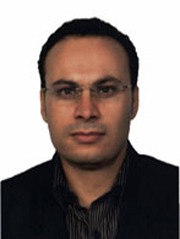
Dr. Mhamed Zineddine was born and raised in Morocco. He graduated from Mohammed V University in Rabat with a bachelor's degree in computer science and subsequently worked as a programmer at the same university for three years. Dr. Zineddine earned his master’s degree in telecommunications from IONA College in New Rochelle, NY, and his PhD in Information Technology Management from Minnesota, USA. He accumulated extensive experience working as a web developer, network designer, and system engineer in the United States before joining ALHOSN University in Abu Dhabi, UAE, in 2008 as an Assistant Professor. During his tenure there, he held several administrative positions, including chair of the Management Information Systems department and IT director. In recognition of his contributions to IT education, he was awarded the 3rd Asia’s Best Business Schools Award as the best IT professor in 2012. In 2016, Dr. Zineddine joined INSA Euromed in Fes, Morocco, as a Professor and researcher. He currently resides in Fes and has keen interests in IT security, cyber-war, AI, and quantum computing.
The integration of quantum computing and artificial intelligence (AI) into the cybersecurity landscape presents both significant challenges and opportunities. Quantum computing threatens current cryptographic methods by leveraging its ability to perform massive parallel computations, potentially breaking widely used encryption algorithms such as RSA and ECC. In response, the development and adoption of quantum-resistant cryptographic algorithms are critical to safeguarding sensitive data. Concurrently, AI is transforming cybersecurity by enabling advanced threat detection, real-time threat intelligence, and automated response mechanisms. However, AI also introduces new challenges, including the risk of adversarial attacks and ethical concerns related to privacy and bias.
To address these evolving threats, organizations must prepare for quantum computing advancements and leverage AI for proactive security measures. This involves implementing quantum-resistant cryptography, enhancing AI-driven security operations, and fostering collaboration between academia, industry, and government. Continuous investment in research and development, along with workforce training, is essential to build the skills needed for future cybersecurity challenges. By integrating quantum and AI solutions, organizations can strengthen their security posture, improve threat detection, and ensure robust defense mechanisms in an increasingly complex digital environment.
